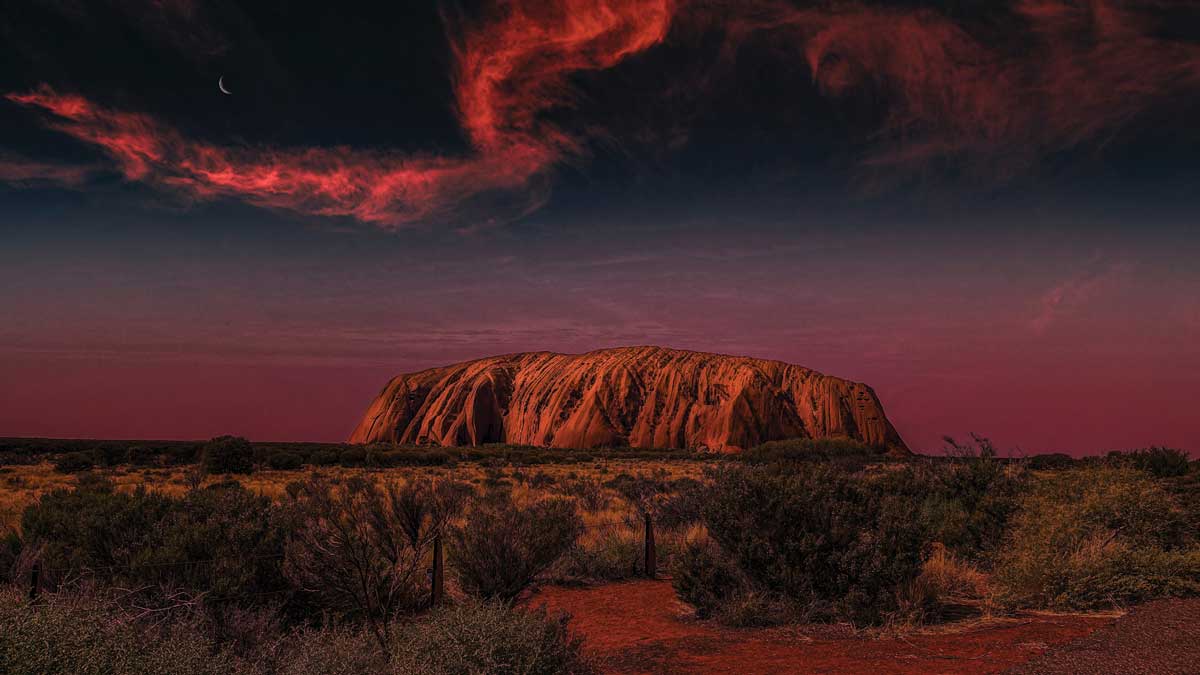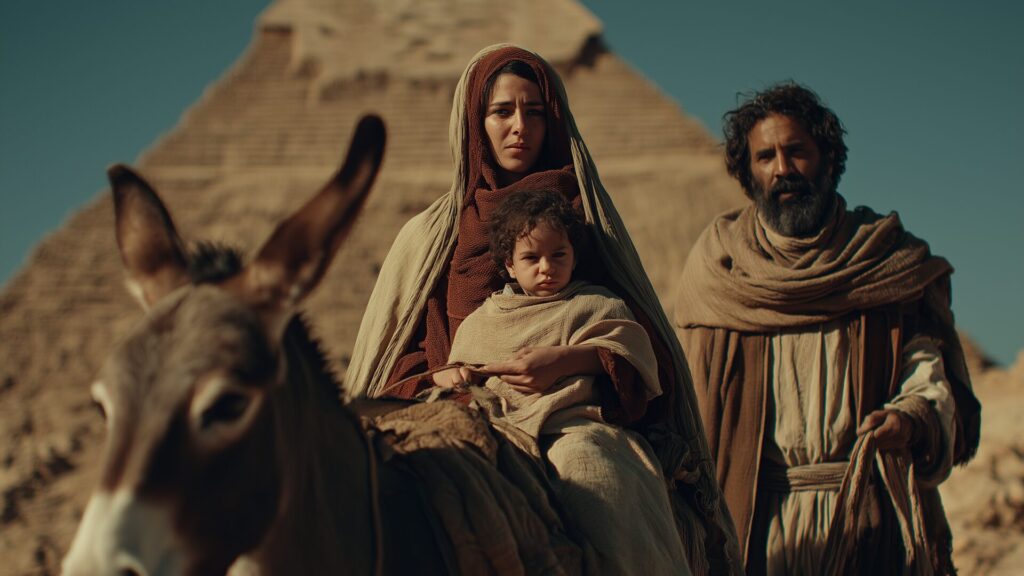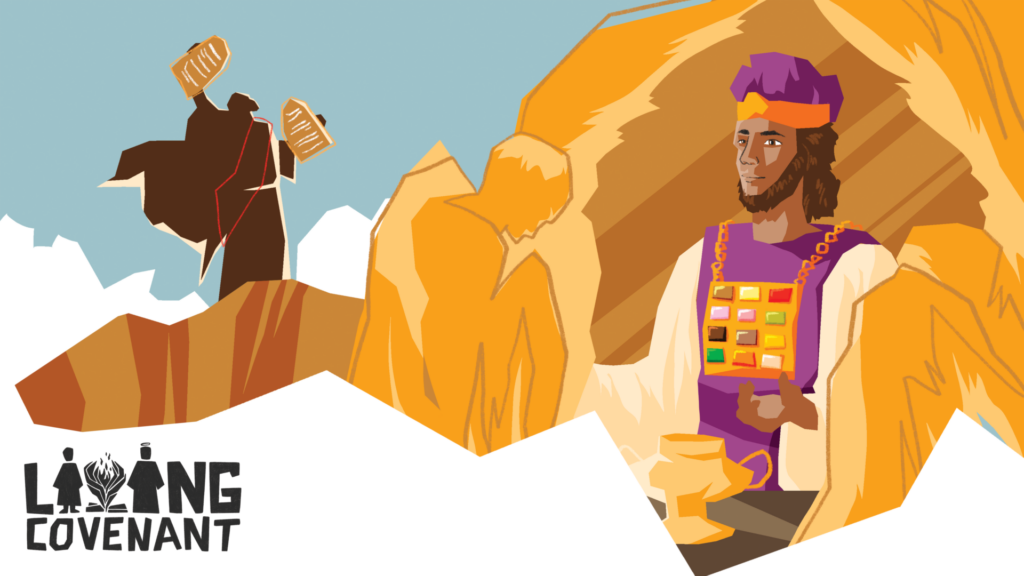The Uluru Statement from the Heart was issued on May 26, 2017 at the First Nations National Constitutional Convention, a conference of Indigenous representatives gathered at Uluru to mark the 50th anniversary of the 1967 referendum that provided constitutional recognition of Australia’s Aboriginal and Torres Strait Islander people as citizens of the nation with an overwhelming vote.
The Uluru Statement acknowledges a number of measures of profound disadvantage among Australia’s Indigenous peoples. These realities include dispossession of land, incarceration rates among the highest in the world for both old and young, and the breakdown of family relationships. The regular “Closing the Gap” reports reveal further disadvantages measured by life expectancy and health outcomes among Indigenous peoples when compared to the rest of the Australian population.
Significantly, these issues echo the mission of Jesus, including announcing good news to the poor and dispossessed, liberation, healing and freedom—as He defined it in Luke 4:18,19: “The Spirit of the Lord is upon me, for he has anointed me to bring Good News to the poor. He has sent me to proclaim that captives will be released, that the blind will see, that the oppressed will be set free, and that the time of the Lord’s favour has come.” While these statements have important spiritual applications, it is clear from Jesus’ actual ministry and His explanation later in Luke’s Gospel that these also came in the form of visible, practical change and transformation to the people and society with which Jesus worked (see Luke 7:21–23). As such, these core concerns of Australia’s Indigenous peoples are also core focus areas for the mission of the Church.
The Seventh-day Adventist Church involves many of its members in local ministry activities, provides educational opportunities, and empowers and supports Indigenous people in serving their own people, working with and for our Indigenous members and their communities. But the best ministry and the most meaningful service begins with listening, which is at the core of the Uluru Statement From the Heart and its call for greater recognition of Indigenous voices.
One of the key assertions of the Uluru Statement From the Heart is that the longstanding and entrenched nature of the disadvantage of Australia’s Indigenous peoples is symptomatic of larger, longer and deeper injustice: “These dimensions of our crisis tell plainly the structural nature of our problem. This is the torment of our powerlessness.” While we can alleviate symptoms, a systemic problem requires system change.
Writing of her United States context and the formerly enslaved people of her nation—in the language of 1896—Seventh-day Adventist co-founder Ellen White’s words could be applied by analogy to the present question:
“The law of God contained in the Ten Commandments reveals to man his duty to love God supremely and his neighbour as himself. The American nation owes a debt of love to the coloured race, and God has ordained that they should make restitution for the wrong they have done them in the past. Those who have taken no active part in enforcing slavery upon the coloured people are not relieved from the responsibility of making special efforts to remove, as far as possible, the sure result of their enslavement” (The Southern Work, p54).
Greater legal recognition of our Indigenous peoples should be understood as an act of justice, of making right, of restitution and reconciliation.
However, there is another element that people of faith can bring to the public debate around the present referendum and the larger issues behind it. Writing earlier this year, journalist Stan Grant urged that the one word missing from the debates and public discussion around the proposed constitutional change was compassion. This is a word—and an attitude—that our faith calls us to.
“We are the most impoverished and imprisoned people in the country, and yet as the miserable reading of the Closing the Gap statistics reminds us, nothing changes. It is as though First Nations suffering is factored into Australia,” wrote Grant. While justice will prompt us that this ought to be different, compassion will move us to action, to refuse to accept the inevitability of this suffering.
Compassion compelled the good Samaritan in Jesus’ story (see Luke 10:33) to cross the road—to be a “good” neighbour, to help the robbed, wounded and bleeding man. Our faith uniquely challenges us to compassionate action. Compassion requires that we risk ourselves, including our discomfort and our expense. When we see a whole group of people who are wounded and dispossessed in our nation, our response must be compassionate.
Our faith also calls us to respect. As creationists, we firmly believe that all people are created in God’s image and are equally loved and called by God. Again, this means we listen and seek to learn. Writing to the early church, Peter urged followers of Jesus to “respect everyone, and love the family of believers. Fear God, and respect the king” (1 Peter 2:17).
It is natural that we have a particular interest in those who are members of our family of faith, and listening to people within this family who have different life experiences can help us practise extending this same respect to all. And while our ultimate allegiance is to God and His kingdom, our respect for the nation and its systems of government—of which we are part—leads us to engage thoughtfully and faithfully with issues in our society. We are concerned with how the systems in which we have influence can better serve those within them, as well as those marginalised by them. It is not that those on the fringes of our society do not have voices but that they are not often heard. Thus, the Bible’s call to “speak up for those who cannot speak for themselves; ensure justice for those being crushed” (Proverbs 31:8).
Listening to the realities of the disadvantage of our Indigenous peoples calls for a response shaped by the best of our faith and faithfulness. They call us back to the mission of Jesus, the mission He passed on to His church. They ask of us that we work together to seek justice, practise compassion and afford respect.
But listening to the invitation given by Australia’s Indigenous people is also to hear the offer of a gift for a richer and renewed community: “We seek constitutional reforms to empower our people and take a rightful place in our own country. When we have power over our destiny our children will flourish. They will walk in two worlds and their culture will be a gift to their country” (The Uluru Statement From the Heart). While one vote or a single constitutional amendment will not resolve all the tragedies of our history or all the brokenness present in our communities, we can offer our voice as people of faith to speak for better, and to speak with and for those who have not been listened to or heard for too long.
At the same time, we anticipate our ultimate reconciliation, redemption and re-creation, when God will wipe away all tears “and there will be no more death or sorrow or crying or pain” (Revelation 21:4), and “a vast crowd, too great to count, from every nation and tribe and people and language”—a description that includes both Indigenous and non-Indigenous Australians—will praise God together (Revelation 7:9).
Discover more:
- Encyclopedia of Seventh-day Adventists, “Aboriginal and Torres Strait Islander Ministries, Australia” (Stephen Piez) encyclopedia.adventist.org/article?id=57R0.
- Brad Watson (editor). Remembering Mona Mona: The Mission in the Rainforest adventistbookcentre.com.au/remembering-mona-mona.
- Stephen Piez, What Are Your Doing For Us? The Untold Story of Karalundi, 1954–2004. adventistbookcentre.com.au/what-are-you-doing-for-us-atsim.
- Nathan Brown, Pastor George: The Story of the First Aboriginal Adventist Pastor adventistbookcentre.com.au/pastor-george.
- The Australian Constitution, aph.gov.au/constitution.
- Luke Beck, “The Theological Underpinnings of Australia’s Constitutional Separation of Church and State Provision”, Australian Journal of Politics and History, 64:1 (2018). onlinelibrary.wiley.com/doi/10.1111/ajph.12428.
- Encyclopedia of Seventh-day Adventists, “Australian Sentinel and Herald of Liberty, Australasian Union Conference” (Milton Hook), encyclopedia.adventist.org/article?id=B85G.
- The Uluru Statement From the Heart, ulurustatement.org.
- Stan Grant, “As we debate the Indigenous Voice to Parliament there is one word missing: Compassion” ABC News, February 5, 2023, abc.net.au/news/2023-02-05/voice-to-parliament-debate-stan-grant-compassion-is-needed/101928250.
- Maury Jackson and Nathan Brown (editors), A House on Fire: How Adventist Faith Responds to Race and Racism, adventistbookcentre.com.au/a-house-on-fire.
- Listen to the Heart, listentotheheart.org.au.
- Australians Together, australianstogether.org.au.
Nathan Brown is a book editor at Signs Publishing and co-editor of A House on Fire: How Adventist Faith Responds to Race and Racism. Listen to the podcast series based on this book at adventistpeace.org/house-on-fire.






